Mental illness, social media, ideological capture, and scientific freedom: Aysha Mirza and my dismissal from Texas Tech medical school
The first chapter in a saga of insanity at Texas Tech
This past Tuesday, I received the following email from my former medical school.
Immediately I screenshotted it:
But having started a new job, I had been at my apartment with my wife all day, and there are extensive server logs documenting me furiously entering commands and trying to write and get my code working.
So how was it possible for me to have been at my apartment and at the school at the same time?
Did I have a clone who merely looked like me spending all of that time with my wife? Was I logged into my server on my iPhone, cranking away at various commands while doing whatever I was alleged to be doing at Texas Tech?
I sent a reply and told the police captain that this was a false allegation. I asked who had made it.
No reply.
The next day, I sent a request for surveillance footage, a request to submit a formal complaint to the university, and a request for an investigation.
No reply.
So what’s the explanation?
My post written two days prior:
Texas Tech is saying, “We’re watching, and if you continue, we are prepared to have still more of our staff make still more allegations about you. We are prepared to make your life hell.”
They are continuing on with the same tactics that led to my dismissal, except in an escalated form. They are now making allegations that I am a criminal (allegations of which may themselves be criminal).
Let’s step back and reflect on what has led us here.
I begged and pleaded to administrators: please don’t do this. I requested four times to speak with the dean of the medical school, and each time, I was turned down. I was never able to meet the dean once, despite him signing my dismissal letter.
Faculty members were instructed by their superiors to write me up and make false allegations. They colluded and conspired. It was a faculty mobbing.
I filed complaints.
In response, the university escalated. More false allegations were made. I was accused of being a danger to those at the school (the second time; we’ll talk about this) and denied due process according to the Texas Education Code. The President of the university Lori Rice-Spearman was behind the suspension of due process.
Finally, I was railroaded through a kangaroo court hearing.
If you’re at Texas Tech and you’re reading this:
Rather than try to understand or work with me, you reacted to what I was writing by abusing your power. You repeatedly broke the law, and you tried to crush not just my dreams but my identity.
I was given a dismissal and deprived of the opportunity to pursue my calling. All for posting my scientific opinion on social media, protected by the First Amendment, that people didn’t like—and quite frankly, in most or possibly all cases were not adequately scientifically qualified or informed to evaluate.
I didn’t want this. You did.
I hope you stoop even lower.
I dare you.
This post will explain the first steps of how I, an MD/PhD student with a full scholarship at the Texas Tech University Health Sciences Center, who conducted original PhD research in biochemistry and with publications with some of the world’s most preeminent scientists, and whose name is mentioned in some of the world’s currently bestselling books in health (including Peter Attia’s Outlive), was not only turned into a pariah after I began writing and speaking about COVID-19 policy, but how malicious actors both inside and outside my institution conspired to destroy the only thing, apart from my children, that I have ever deeply cared about: my medical career.
To say that I cared about medicine is an understatement. It was my identity, my life, my being.
We will start at the beginning.
To be exhaustive, I will only be able to tell the story in parts. I was subjected dozens of incidents the systematic nature of which will strain credulity—if not for the receipts that I will be sharing. It really could be a book. It certainly will be at least part of one.
In the following section, for those who are reading about this the first time, I provide the background.
For those who are already familiar with my story, you can skim or skip this section and head immediately for the section following.
In that section, I will name the first name, and I will detail how their goals were achieved.
Up until I was expelled in January of this year, I was an MD/PhD student.
An MD/PhD program consists of the first two years of medical school followed by a PhD, then completing with two years of clinical training conducted in an apprenticeship style. MD/PhD students often pursue careers combining clinical and scientific work. In the ideal version, we understand medical problems through clinical experience. Then we apply our scientific expertise to investigate these medical problems and help advance clinical medicine through medical research. We are called physician-scientists, combining the work of the physician with that of the scientist.
I had no disciplinary record up to that point. Not in middle school, not in high school, not in college, not at work, not in medical school, not during my PhD.
Not, that is, until I wrote about COVID-19. And then I received more than a dozen complaints in six months. If we count the allegations added during the dismissal hearing itself, the allegations that were made against me added up to several dozen.
During the final months of my PhD before beginning my final two clinical years of my medical degree, I began to come to a disturbing realization:
I had spent years debunking nutrition misinformation, but those who had communicated during the pandemic response had used the same tricks, the same tropes, the same kinds of pseudoscientific distortions I so often criticized diet book quacks for using.
So I wrote a thread on Twitter that went viral:
I wrote this thread in just minutes and had no idea that it would resonate with people so strongly.
I was invited by the deputy opinion editor Batya Ungar-Sargon to write an op-ed for Newsweek.
I accepted excitedly. It was my first op-ed.
I read Batya’s book. Then I read the work of Jay Bhattacharya, an MD/PhD and a distinguished professor of health economics at Stanford. I combined each of these sources with my own experiences and perspective, writing a semi-autobiographical analysis of what I (and those of us in the medical establishment) had gotten wrong.
Scientifically—and this was crucial—I wasn’t coming up with anything myself but was relying on Jay’s scientific criticism. Jay is a respected academic and scientist (though he too was smeared).
Six weeks later, the op-ed was published.
You can read it here.
The title wasn’t mine. Although I agree with it, the article’s content was much more moderate in tone.
I asked Batya to clear my institution name from the author information. She did, writing, as you can see, just “medical school”.
The article hit the Internet. Then it went viral. Really viral.
It was one of the most viral pieces that Newsweek had published in years.
Most of my department at my school read it, as did doctors and students at schools around the country.
I was recently told by an endowed chair in political science at Princeton that he uses the piece to teach his students about politics in America.
Gad Saad read it. Zuby read it. Joe Rogan read it. I was followed by Zuby and Jordan Peterson. By Jay Bhattacharya, Martin Kulldorf, Sunetra Gupta, Marty Makary, and the entire COVID-19 dissident crew.
This was deeply uncomfortable. I was a lifelong Democrat. I believed in the institutions. Yet people whom I had for years been critical of were suddenly cheering me on.
Please read the article so that you understand my confusion.
Max Lugavere and I discussed going on Tucker Carlson. He knew the producer and connected me with her. I went on Tucker.
Tucker invited me back for an hour-long segment on his interview show Tucker Carlson Today. He was fired from Fox before we could do this interview.
My reasoning for going on Tucker was that if I could connect with the opposition—with the people to whom I was apologizing—I could help to heal some of the wounds in this country. I could help build trust again. Plus, Tucker was the most watched television show in America. I was also invited to Steve Bannon’s show, to Newsmax, to Naomi Wolf’s show, to Del Bigtree’s Highwire. I turned all of these down.
But Tucker Carlson, the most watched television show in the United States—surely, one could not argue that this was fringe? Everyone knew I was a Democrat, right? That I believed in science, right? Everyone knew about my years of debunking misinformation, right?
I was so naive.
I started being smeared by colleagues online, who had, until that point, followed, retweeted, and (I can only guess) respected me. Soon the attacks commenced, sometimes spearheaded by leading academic doctors.
To defend myself, I started becoming deeply informed about what I had only learned the basics of from Jay Bhattacharya’s work.
It didn’t help.
The more I became familiar with the nuances of the scientific literature, the more I became confident in my positions and defended them, the more I was subjected to vicious personal attacks. Becoming more scientific and informed didn’t help, because the point was not scientific discussion; the point was voicing the “right” opinions.
Almost never did I confront competent, civil opposition. Jeffrey Morris at Penn was one of the only exceptions, and for that I will always respect him, even when we disagree.
Nearly 100% of the attacks were vicious slander and personal attacks. I had never seen anything like this before, not even from the diet promoters I had formerly debunked. Even they were far more civil than I saw leading doctors behave. It was truly unbelievable.
Men and women of science resorting to personal attacks, tagging my school, and demanding my expulsion.
But it gets worse. Because soon even close colleagues at my institution with whom I thought I had excellent relationships turned on me. They began slandering me, telling people about the problems I had been experiencing in my marriage, but with malicious twists that misrepresented what I had told them. And so much more.
The person who took my picture for the Newsweek article had helped me brainstorm and write the piece. Yet, unbelievably, when she discovered that I was being targeted, she too turned on me and joined in on the attacks.
That was only the beginning.
The number of people who participated in what appears to be almost concerted attempt to end my career, from any direction from which they could gain any purchase or leverage to do so, staggers my brain.
I did not understand that this is the way the world works, and it disturbs me to my core.
This is the most insane thing I have ever experienced in my life.
Read my Newsweek piece. And ask yourself whether I said anything that was wrong.
Aysha Mirza is a 44-year-old unmarried chronically unemployed woman in New Jersey who lives with her parents. Occasionally, she does low-paid modeling gigs and promotes affiliate merchandise on Instagram. I first became aware of Aysha in March of 2023, when I immediately blocked her for her aggressive behavior, and then I was only aware of her sporadically throughout the rest of the year.
Here’s one example:
I have more than 600 similar such tweets that I collected with an automated program. They are available in a link to a document at the end of this post.
Before you minimize the impact that this could have on someone’s reputation, consider that Aysha tweeted things like this several times everyday for nearly a year, tagging my medical school, faculty members, and administrators.
This eventually led to my Dean of the School of Medicine at Texas Tech responding to Aysha’s repeat provocations publicly. Indeed, Aysha harassed and tagged the university so often that Dean Berk’s final tweets before his untimely death were about my “misinformation”:
Little did I know, Aysha has a history of stalking and harassing behavior going back at least half a decade. Her first known victim was Latoya Shauntay Snell, an African-American blogger, runner, and healthcare advocate.
And it turns out that there is a massive thread with dozens of examples of Aysha doing the same thing to a number of other people.
Read it here.
Even after Dean Berk’s tragic death, Aysha repeatedly emailed and called my school. She found out who my peers were and messaged them, slandering me. She then got more information from them. Both my close colleagues and even one of my deans passed information to Aysha, as I will show in a later post.
Over the course of her harassment, Aysha Mirza built from around 5,000 followers on Twitter to more than 10,000.
I cannot cover everything she did to me, because so much requires context that will need to come later. I can only provide the content and some comments. As I provide the full story, she will keep appearing in it as is relevant. But I will provide a brief overview of her method.
First, she writes as if she is familiar with her victim. Her posts imply some sort of familiarity and regular contact with her target. She did this even though I only ever responded to her twice over the course of 2023. The rest of the time, I had her blocked, during which she used alternative accounts to monitor me.
Second, she employs what might be called a three-for-a-half strategy of defaming her targets. She takes one half-truth, exaggerates it, then adds several lies. There is thus one-half truth that becomes a lie and two additional lies. One is left having to acknowledge the half-truth and address the two blatant lies, but since the entire process feels so demeaning, one just ignores all of it. Yet, Aysha will continue to post these lies for days and days, and soon enough the slander sticks. Then she adds more. And then more. And then more. And more. And more and more. Day after day after day.
Before providing the complete collection of her tweets, I will conclude with a discussion on the nature of what I dealt with, and with what I believe we as a society are dealing with.
The Polish psychiatrist Andrzej Łobaczewski, having lived under both Nazism and communism in his native land Poland, wrote at length about what he called ponerology, that is, the study of evil. In his classic text, which is today seeing a resurgence for reasons that will soon be obvious, Łobaczewski suggested provided certain conditions were met, ruling regimes can become progressively overtaken by individuals with narcissistic and psychopathic character traits. Over time, the preponderance of individuals with these traits increases in the institutions, causing their moral and political corruption. This culminates in tyrannies classically, and in the modern world, totalitarian regimes.
Łobaczewski’s phrase pathocracy, that is, rule by the pathological, was coined to capture this psychological dimension (the investigation of which Łobaczewski took to be his unique contribution) of totalitarian rule.
To characterize pathocracy, we can quote Orwell’s classic passage from 1984, written decades before Łobaczewski’s work:
Do you begin to see, then, what kind of world we are creating? It is the exact opposite of the stupid hedonistic Utopias that the old reformers imagined. A world of fear and treachery and torment, a world of trampling and being trampled upon, a world which will grow not less but more merciless as it refines itself. Progress in our world will be progress towards more pain. The old civilizations claimed that they were founded on love or justice. Ours is founded upon hatred. In our world there will be no emotions except fear, rage, triumph, and self-abasement. Everything else we shall destroy everything. Already we are breaking down the habits of thought which have survived from before the Revolution. … There will be no loyalty, except loyalty towards the Party. There will be no love, except the love of Big Brother. There will be no laughter, except the laugh of triumph over a defeated enemy. … Always there will be the intoxication of power, constantly increasing and constantly growing subtler. Always, at every moment, there will be the thrill of victory, the sensation of trampling on an enemy who is helpless. If you want a picture of the future, imagine a boot stamping on a human face -- for ever
In other words, a pathocracy is a regime whose core organizing principle is systematic aggression directed against enemies, internal or external—reflecting the internal organizing psychological organization of the pathological individuals who have taken power.
Narcissists and psychopaths, according to Łobaczewski, do not openly practice narcissistic and psychopathic behavior, but rather cloak it beneath an ideology that gives them permission to abuse others in the name of goodness or justice. Rather than be condemned for their aggression (a core organizing principle of Judeo-Christian societies), pathocratic ideologies reward and celebrate interpersonal aggression. As a result, Łobaczewski believed that such ideologies especially attract psychopaths and narcissists, since they provide the perfect vehicle for such individuals to act our their personality pathologies.
Now, the cluster B pathologies—traits along the histrionic, borderline, narcissistic, and antisocial personality spectra—in particular are characterized by a predisposition to enter Karpman’s drama triangle. One may understand the cluster B pathologies as, at their heart, forms of constitutional emotional dysregulation that predisposes the pathological individual to engage in inappropriately elevated interpersonal conflict. These pathologies are thus the foundation of pathocratic regimes.
And it just so happens that the pathocratic ideologies, such as Marxism, neo-Marxism, Nazism, and contemporary identitarianism (including wokism), are characterized by the endorsement of the entrance into such triangles. (Indeed, Hegel’s master-slave dialectic—a dialectic of domination and subjection—is a core organizing principle underpinning all of these belief systems, Hegel being the intellectual grandfather of both fascism and communism and all of their 21st century identitarian derivatives.)
Thus, there is a striking resonance between such belief systems—that celebrate entrance into drama triangles and the corresponding interpersonal categories of victimhood, saviorhood, and righteous persecution—and the pathologies of personality that are attracted to these belief systems. That is why those with intense emotional dysregulation, i.e. those with cluster B pathologies, are particular attracted to such ideologies. But this is also why institutions that embrace such ideologies attract such pathological people.
This is why Orwell famously says, provocatively, but in a way that should make sense given the above, that:
“Power is not a means; it is an end. One does not establish a dictatorship in order to safeguard a revolution; one makes the revolution in order to establish the dictatorship. The object of persecution is persecution. The object of torture is torture. The object of power is power.”
Orwell is saying: ideology is just a cloak of internal pathology—a way for the pathological to act out their pathology is a socially approved manner. Power is not sought in order to achieve the revolution. Rather, “revolution” is merely what justifies the power grab, which was the real goal in the first place.
I would be remiss not also to make a mention of social media itself. And here, I will quote the words of one Christopher Rufo:
Today, we are witnessing the emergence of something new: the “Cluster B society.” Like the culture of narcissism, our digital age has distinct psychological traits, heavily influenced by the rise of personal pathologies and the power of social media. For this generation, the cameras are always on. The audience is always watching. And the old narcissism has transformed into frenzy, moral theatrics, emotional volatility, self-indulgence, and outbursts of violence.
Psychologists have captured the spirit of our modern culture in four specific psychopathologies that, together, make up the Cluster B personality disorders: the narcissist, the borderline, the histrionic, and the antisocial. (They also identify Cluster A and Cluster C groupings of personality disorders.)
Narcissistic personality disorder is characterized by a sense of entitlement, obsession with one’s own importance, and deep feelings of resentment, often expressed through moral self-righteousness. Borderline personality disorder is marked by an unstable sense of identity, black-and-white thinking, feelings of emptiness, and recurring self-harm and suicide attempts. Histrionic personality disorder exhibits excessive emotionality, sexual provocation, and attention-seeking, often to serve a pathological need for sympathy. Antisocial personality disorder is typified by impulsivity, manipulation, disregard for others, and a penchant for violence and aggression that violates social norms.
This cluster of psychopathologies is no longer an individual matter, however, to be dealt with in the privacy of the analyst’s office. On the contrary, Cluster B psychological traits have begun to shape the patterns and structures of our culture. The scenes of American public life increasingly resemble a Cluster B psychodrama: victimhood replaces accomplishment as the standard of merit; accusation replaces disagreement as the means of settling disputes; false compassion becomes the primary method of manipulating citizens into compliance; and the whole scheme is enforced with the threat of violence: obey, or suffer the consequences.
I want to conclude this post by making a few suggestions:
First, that Aysha Mirza is a clinical narcissist with psychopathic traits, whose pathology is being expressed through “progressive” ideology.
Second, that the reason that Aysha’s posts resonated so strongly with students, faculty, and administration at my institution—and why some even collaborated with her to achieve my dismissal—is that they were locked into the same drama triangle-oriented ways of thinking through the ideological commitment to an oppressor-oppressed ideology that comprises Aysha’s very psychological core—and the foundation of the woke ideology that has captured higher education.
Third, that the insane behavior of pretending that I trespassed at my university was a reflection at my institution of the very same kind of behavior that Aysha herself routinely expresses online. Who accuses a student of trespassing who didn’t trespass and was simply sitting at home, except a crazy person? Indeed, I want to suggest much of the insane behavior directed at me over the course of 2023 was motivated in much the same way that Aysha’s behavior was.
In other words, the contemporary far-left political ideology that has captured the institutions today is an ideology that resonates strongly with cluster B pathology and indeed promotes such pathology as the default culture of the institution. Let us look again at the drama triangle:
In this case, those who sought to cancel me thought of themselves as “rescuers” of “victims” (COVID-19 patients), and in seeing themselves in such a way, were unable to see me as anything but a “persecutor” or “oppressor”. They were not able to take my scientific statements at face value—because they were locked into a pathological view of knowledge that is so emotionally dysregulated that it is unable to impartially, scientifically evaluate disagreements without assigning to them moral or emotional valence. In other words, those who were so intent on viciously attacking me were, by virtue of their emotional state, unable to think scientifically and could only impugn me as immoral.
Finally, and it follows, that “misinformation” was never the point. I was not seen as simply spreading misinformation, for misinformation can be corrected—which nobody attempted to do in a civil or scientific manner. I was seen both online and at my institution as fundamentally defective, evil, or crazy. And this was the underlying rationale behind my dismissal and the behavior directed toward me that preceded it. It was not about science. It was about perceived morality, because those who disagreed with me were unable to think scientifically. This is consistent with the two words that one faculty member recently used to describe to me how the upper administration viewed me: “nutjob” and “zealot”.
Now, it is certainly possible that I am wrong. But if I am, I am unable to explain so much of the cruel and insane behavior directed toward me by those at my institution.
But for the sake of argument, let us consider the alternative possibility: I was dealt with unfairly because the administration simply wanted to avoid dealing with the online storm that my presence created.
But that explanation does not explain the betrayal that was produced as soon as that storm settled at the institution in the weeks following the publication of my op-ed and my having gone on Tucker.
Furthermore, even if we discard that problem, this alternative explanation does not explain why there should be such a storm online but no such reaction at my institution, a highly implausible organization of affairs.
I await someone who can provide me with an alternative explanation of the facts.
As for the posts, without any further ado:
https://docs.google.com/document/d/13yIcIEUty7WfAf5ctJ6Z5oYuMZfOKqje3T6Ao2UVfvs/edit?usp=sharing
And thus concludes the first part of my story.





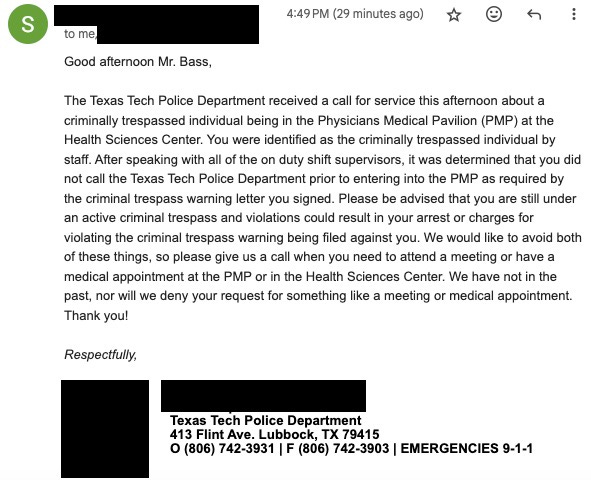
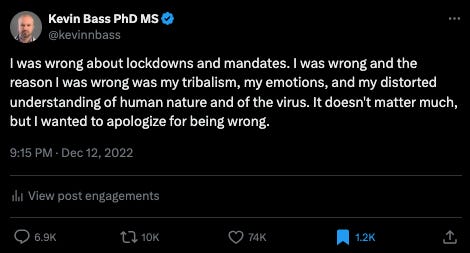









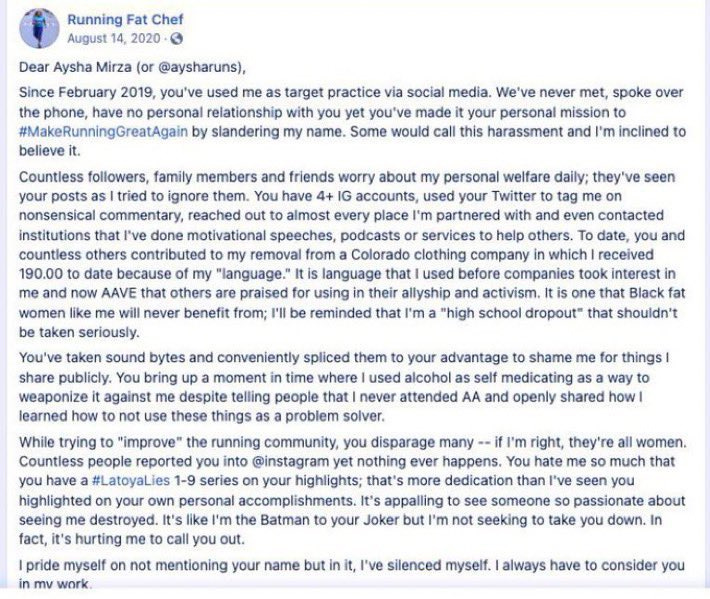
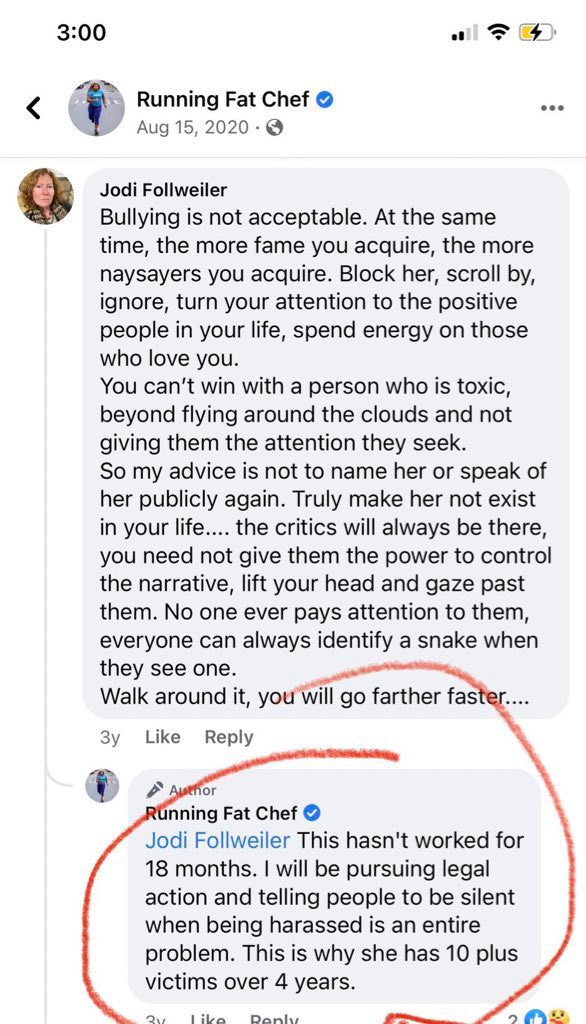
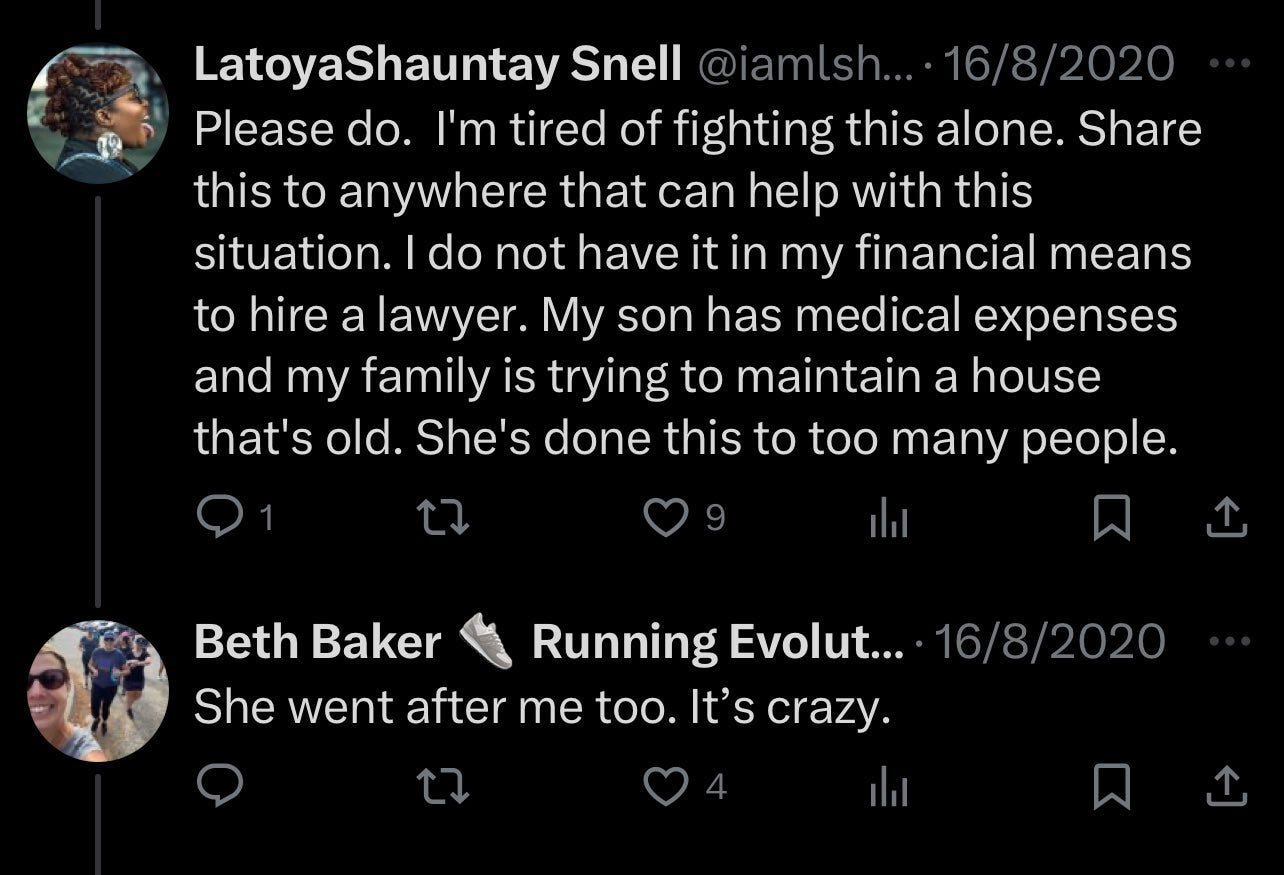
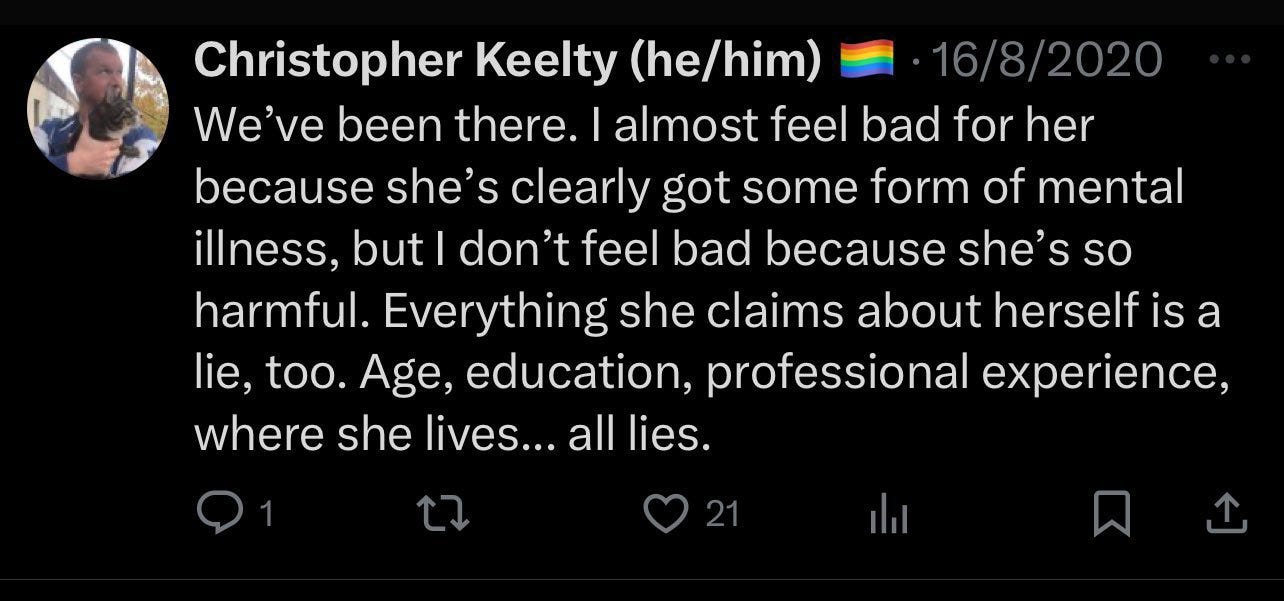
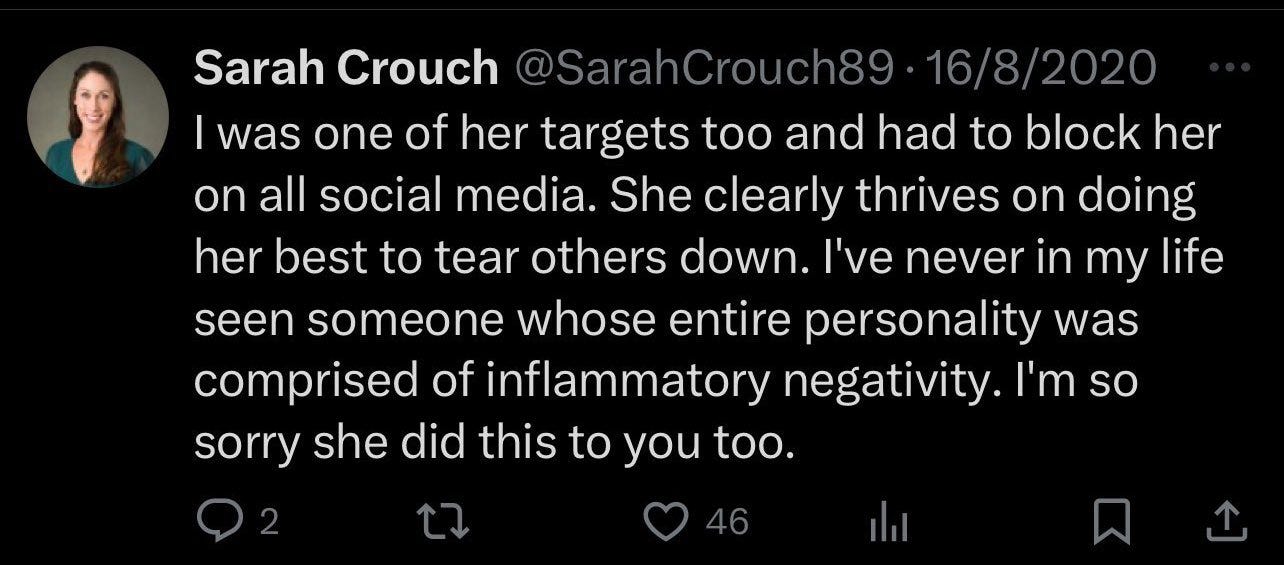
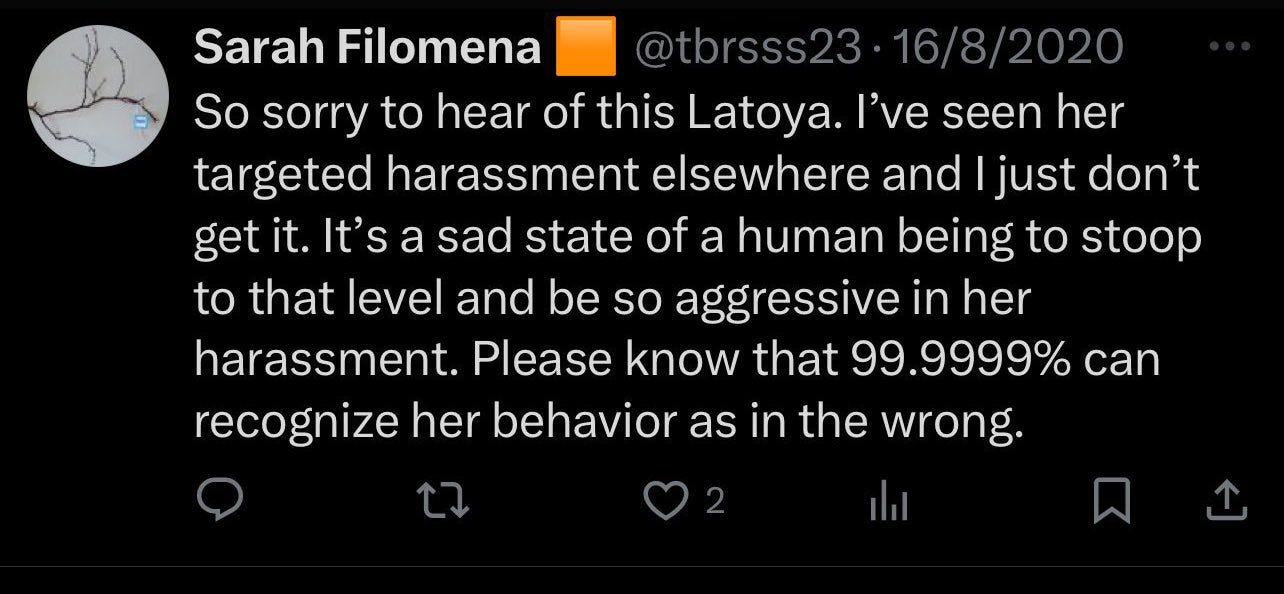
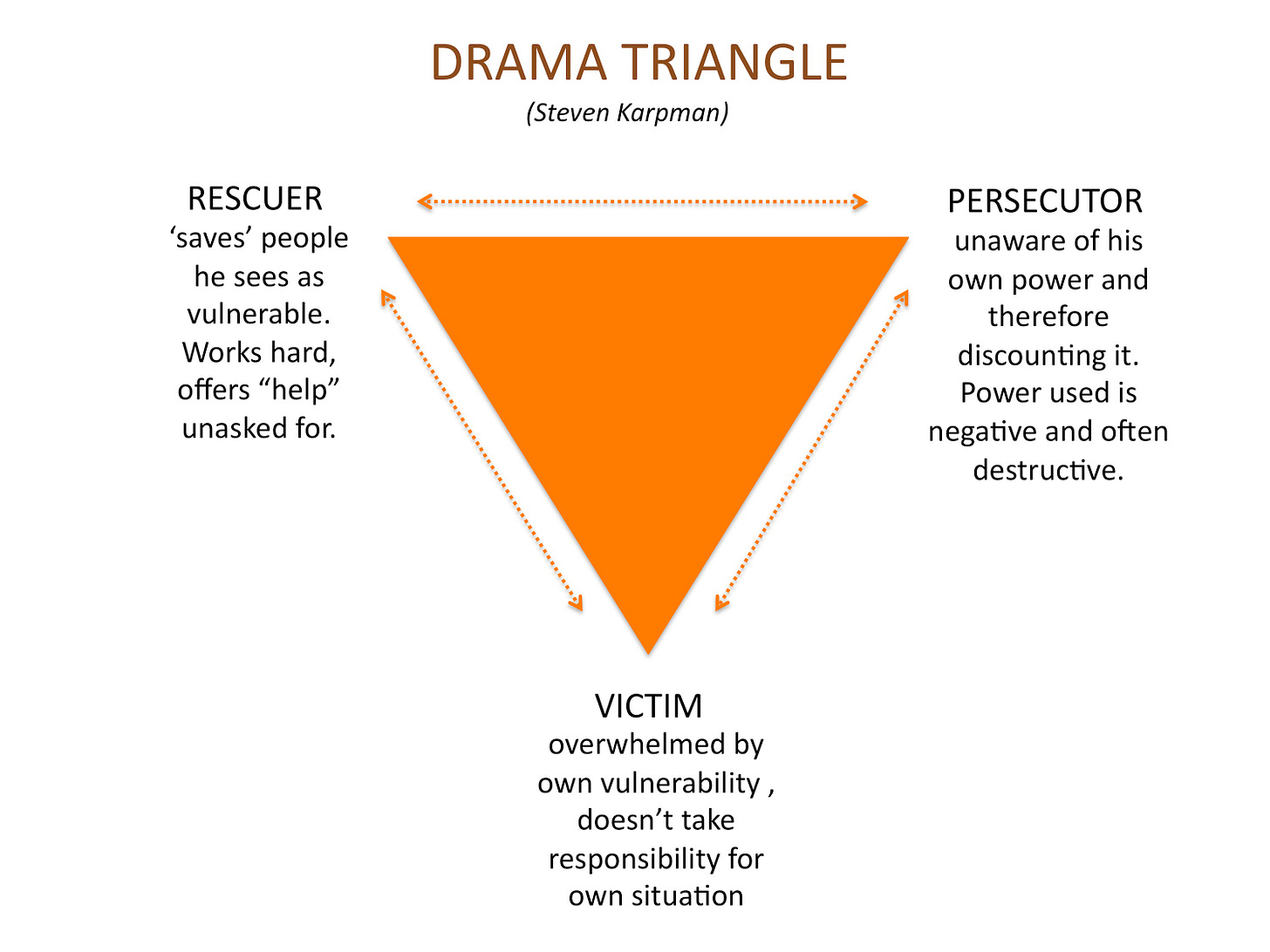

First of all, Dr. Bass, you have my appreciation for your clarity and bravery in speaking so thoughtfully in sharing a deep wound rendered by people breaking their bond with you as a student in their institution and doing it so poorly, violating so many laws and norms and procedures and decencies. Your discussion is applicable, as I have told my subscribers in my not cross posting this article to the DrRimaTruthReports.substack.com, to the pathocracy of the UN, Pact for the Future, Climate Change and all the other unscientific rationales for total global tyranny. The parallels are uncanny.
I hope you will direct your readers to https://PreventGenocide2030.org where they can take part in the urgently important ending of this tyranny in very practical terms.
In addition, I would welcome the opportunity to interview you for my podcasts.
My email is releyes3@gmail.com. Please reach out to m,e.
Thank you for writing your story. We have all been dealing with this Mao Great Proletarian Cultural Revolution crap. It's divided our family & friends, and feels like living in a bad dystopic novel- (no need to read about it anymore). Having recently moved to Texas I can attest that, unfortunately, the Demonrats are here, too. The truth will set us free if we walk with God. 🙏